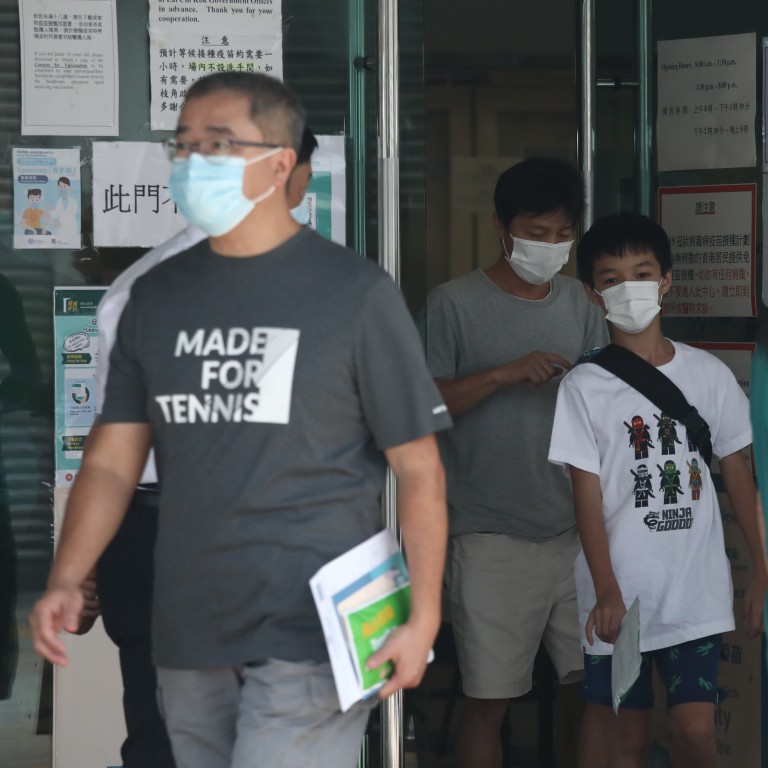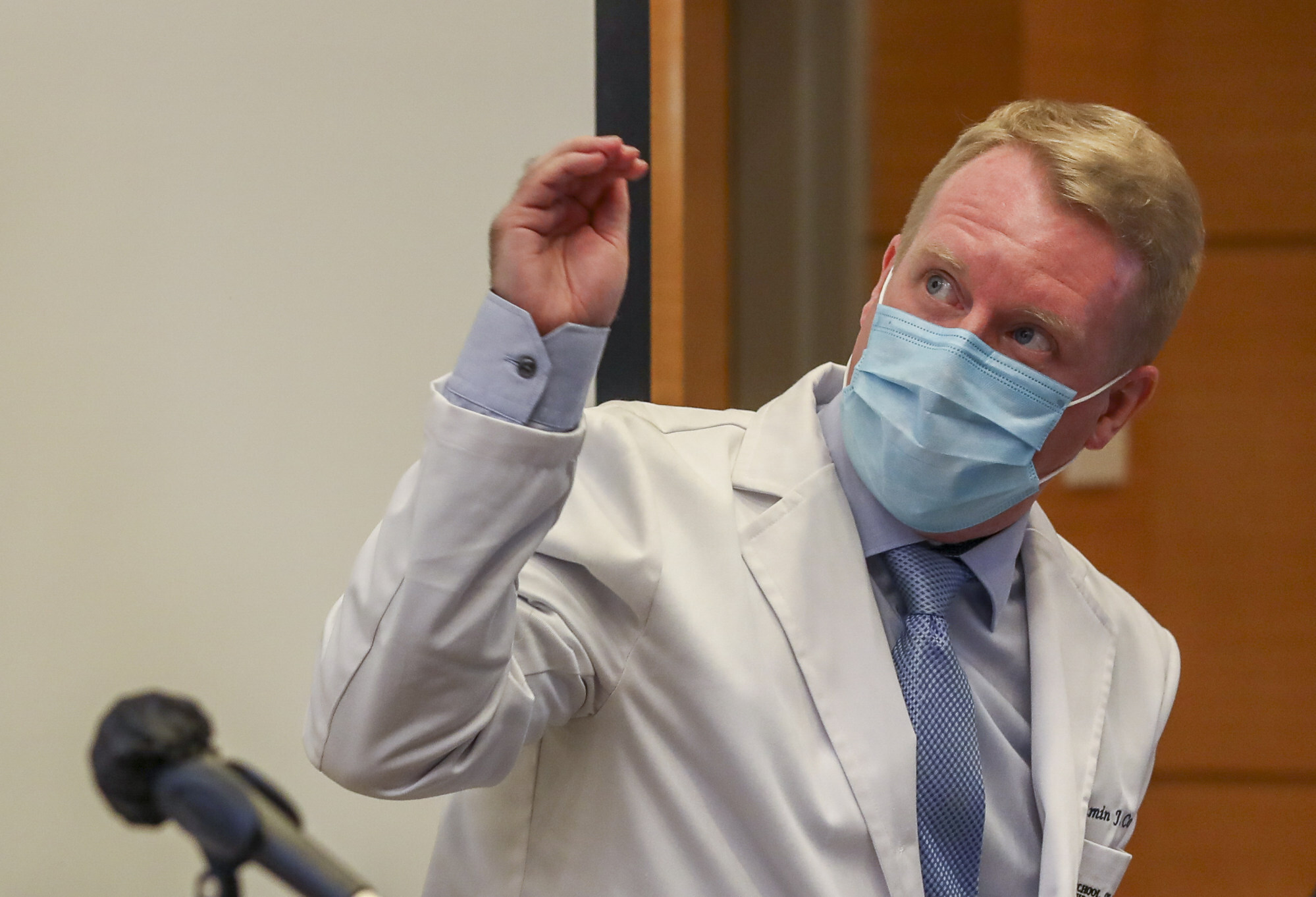
Exclusive | Coronavirus: Hong Kong study finds ‘substantial’ antibody-level difference between BioNTech, Sinovac jab recipients
- Amount of antibodies does not directly reflect individual’s level of protection, but researcher notes increasing evidence that higher levels generally correspond with greater immunity against infection
- Objective of study was to estimate incidence of natural infections over time and level of population immunity due to infections and vaccinations
While the study’s findings do not place the merits of taking one vaccine above the other, they have raised questions about a government plan to shorten the quarantine period for vaccinated travellers arriving in Hong Kong based on antibody tests.
Lead researcher Professor Benjamin Cowling, an epidemiologist at the University of Hong Kong (HKU), told the Post the results also suggested that some of those who had received the Sinovac vaccine might need a booster shot.
The government-commissioned study was conducted by HKU’s school of public health and involved tracking the antibody responses of 1,000 people who received either vaccine. Supported by the Health and Medical Research Fund, the objective of the study was to estimate the incidence of natural infections over time and the level of population immunity due to infections and vaccinations.
The details of the findings would be published first in academic journals, Cowling said.
“We do see substantially higher antibody responses in people who received the BioNTech vaccine, consistent with the higher levels of clinical protection reported in the large phase-three clinical trial of that vaccine, compared to the phase-three clinical trial of the Sinovac vaccine,” he said.
The BioNTech vaccine has been reported to have a 95 per cent efficacy rate, while the mark for Sinovac is 50.7 per cent.
Hong Kong has administered more than 3 million doses of vaccines to residents since late February, comprising 1.7 million BioNTech jabs and 1.3 million Sinovac shots. Chief Executive Carrie Lam Cheng Yuet-ngor and her top officials received the mainland-made vaccine when it arrived in the city in February.

Cowling said preliminary findings from about 100 participants in the study were in line with the efficacy rates published by the pharmaceutical firms.
The amount of antibodies does not directly reflect the individual’s level of protection, but Cowling said there was increasing evidence that higher levels generally corresponded with greater immunity against infection.
A higher amount of antibodies usually took longer to dissipate and subside, meaning the period of protection provided by a vaccine could be longer, he said.
Hong Kong business chambers announce HK$35 million in vaccine giveaways
But even when antibodies were no longer detectable, some people might still be able to mount a robust defence against a virus that attacked them.
Cowling said that during the 2009 H1N1 swine flu pandemic, for example, some elderly people showed signs of protection, perhaps because they were exposed to a similar virus strain when they were young.
A recent Chinese University of Hong Kong study of 111 individuals who received either Sinovac or BioNTech jabs found all of them were able to generate antibodies against Covid-19.
Lam said her administration was looking into using antibody screening, such as a finger-prick blood test, to shorten the current 14-day hotel quarantine for most overseas arrivals.
Chinese jab becomes an added hurdle for some African visitors to the EU
Government scientific advisers have recommended cutting the quarantine period to seven days for vaccinated travellers arriving from medium-risk countries if, upon arrival, they test positive for Covid-19 antibodies and negative for the virus itself.
Officials were also considering a separate quarantine waiver for fully vaccinated business travellers from lower-risk places as Hong Kong’s Covid-19 situation eased, but health experts have suggested these arrivals should also clear an antibody test.
Cowling said he supported the “inclusion of antibody testing to shorten quarantine”.
“I think it will be justified to offer exemption of quarantine for fully vaccinated people who have a positive test for antibodies and a negative test for the virus, because of the very low risk of infection in this group,” he added.
But he noted that his findings showed there could be issues in rolling out the antibody tests for travellers because in some cases, testing might fail to pick up lower levels of antibodies generated by the Sinovac vaccine.
The study results come at a time when the city’s health authorities are expected to look at procuring vaccine supplies to provide booster shots that improve protection against the virus.
Both vaccines available in Hong Kong require two jabs.
Since Sinovac recipients were found to have a lower level of antibodies, Cowling said, his study suggested the need for a third dose of the vaccine to lengthen the protection period for some people.
Further research was needed to determine the exact timing and effectiveness of booster shots, he said.


